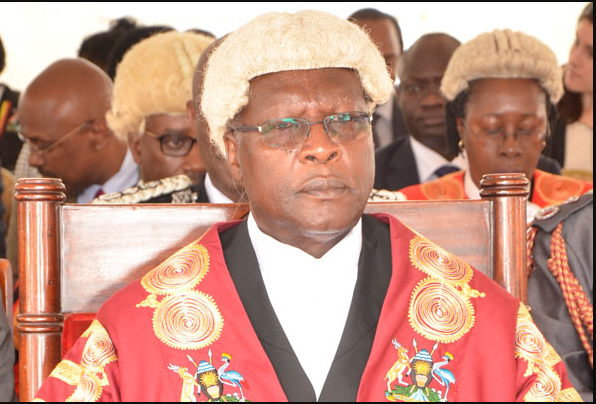Their story begins like any other ordinary Uganda civil servants’, burdened with the responsibility of surviving on meager salaries while their counterparts in statutory bodies enjoy huge take-homes. But President Museveni’s government has taken a far from ordinary turn – using the Judicial Service Commission (JSC) to call for a crisis meeting with the leadership of the striking judicial officers’ body at 3pm today.
The Judicial Service Commission is an independent agency of the state established under the Constitution of the Republic of Uganda. It is a specialized appointing Commission enjoying broad oversight functions in relation to services delivered to the people by the Judiciary. The mandate and functions of the Commission are defined under Articles 146-151 of the Constitution.
HOW IT ALL BEGAN
Last Friday, all judicial officers who subscribe to the Uganda Judicial Officers Association (UJOA), laid down their tools in protest of poor remuneration and other welfare related issues that government has failed to address.
The Ugandan judges had last month issued the government a 30-day ultimatum to increase their salaries and living conditions or they will embark on a strike action.
The judges issued the communique after a meeting when they voted overwhelmingly for the strike on August 23 if their demands are not met.
Among the demands are bridging the salary disparity between them government agency workers, official vehicles, medical insurance, housing and security.
Present at the meeting was justice minister Kahinda Otafiire who failed to convince the over 400 judges against the strike after promising to fulfil their demands in three months.
The decision came days after state prosecutors went on strike over low wages and poor working conditions leaving courts empty.
The prosecutors suspended their strike after the government made commitments that it will solve their issues.
They also gave the government 90 days to meet their demands or continue the strike action.
READ: Who Is Justice Benjamin Kabiito? Meet Museveni’s pick for radical Ogoola replacement
“That whereas the heads of other government organs and agencies for example, the inspector general of government, who was appointed by virtue of being a High court judge, earns Shs 17,875,000; the Principal judge, who heads the High court, justices of the Supreme court, justices of the Court of Appeal, judges of the High court earn Shs 10,532,581, Shs 9,688,506 and Shs 9,358,216, respectively,” former Oyam North MP Krispus Ayena Odongo says in his petition.

UJOA’s call for industrial action seemed to defy Chief Justice Bart Katureebe’s plea for more time. Katureebe had earlier pleaded with all judicial officers not to lay down their tools. He said he is still engaging government to address their issues.
WAY FORWARD
The strike is largely supported by magistrates who are among the lowest-paid judicial officers.
Now the JSC chairperson, Mr Justice Benjamin Kabiito, is largely to forge a way forward on how to stop the ongoing strike by judicial officers that might cause a constitutional crisis if not stopped in its early stages. The strike has today entered day two.
Mr Godfrey Kaweesa the UJOA president on Sunday evening said they are open to talks with government and that the strike can only be called off if an unequivocal offer is put on the table.
“UJOA’s position is that the resolution holds and the status quo maintained until a firm and unequivocal offer is put on the table by the executive,” Mr Kaweesa revealed in an interview.











